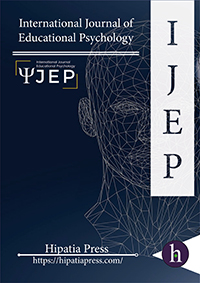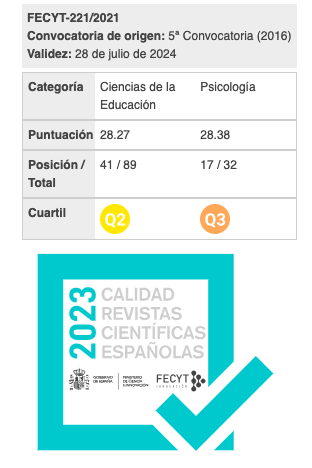The Paradox of the Missing Biological Function in Understanding: Implications for Moral and General Education
Keywords:
Downloads
Abstract
This essay argues that the endemic moral crisis and the crisis of confidence in education are related; and both are a function, in part, of a paradoxical divide between two types of human understanding: psychological and biofunctional. In the psychological realm, people cause understanding using the psychological theories they know. Biofunctionally, understanding is caught by the understander, by analogy to catching a cold, caused by an unknown biological function, without the understander (a) having direct access to the cause, (b) knowing what the cause is, and (c) realizing how the cause works. This paradox introduces a divide between people’s psychological and biofunctional types of understanding. Unwarily, people tend to overlook this divide thereby compromising their full understanding potential. In this essay, I elaborate on the nature of this paradox, the awesome divide that it causes, and its implications for moral and general education.
Downloads
References
Anderson, J. (2012, Published: March 27, 2012). SAT and ACT to Tighten Rules After Cheating Scandal. The New York Times. Retrieved Friday, March 16, 2012 Last Update: 11:43 AM ET, from http://www.nytimes.com/2012/03/28/education/after-cheating-scandal-sat-and-act-will-tighten-security.html?nl=todaysheadlines&emc=tha2_20120328
Google Scholar CrossrefAuble, P. M., Franks, J. J., & Soraci, S. A. (1979). Effort toward comprehension: Elaboration or “aha”. Memory and Cognition, 7(6), 426-434.
Google Scholar CrossrefBandura, A. (1990). Selective activation and disengagement of moral control. Journal of Social Issues, 46(1), 27-46.
Google Scholar CrossrefBandura, A. (1991). Social cognitive theory of self-regulation. Organizational behavior and human decision processes, 50(2), 248-287.
Google Scholar CrossrefBandura, A. (1999). Moral disengagement in the perpetration of inhumanities. Personality and social psychology review, 3(3), 193-209.
Google Scholar CrossrefBandura, A. (2002). Selective moral disengagement in the exercise of moral agency. Journal of Moral Education, 31(2), 101-119.
Google Scholar CrossrefBandura, A., Barbaranelli, C., Caprara, G. V., & Pastorelli, C. (1996). Mechanisms of moral disengagement in the exercise of moral agency. Journal of Personality and Social Psychology, 71(2), 364-374.
Google Scholar CrossrefBaumard, N., André, J. B., & Sperber, D. (2012). A mutualistic approach to morality. Behavioral and Brain Sciences, in press.
Google Scholar CrossrefBebeau, M. J., Rest, J. R., & Narvaez, D. (1999). Beyond the promise: A perspective on research in moral education. Educational Researcher, 28(4), 18-26.
Google Scholar CrossrefBereiter, C., & Scardamalia, M. (1985). Cognitive coping strategies and the problem of "inert knowledge". In S. F. Chipman, J. W. Segal & R. Glaser (Eds.), Thinking and learning skills: Current research and open questions (Vol. 2, pp. 65-80). Hillsdale, NJ: Erlbaum.
Google Scholar CrossrefBlasi, A. (1980). Bridging moral cognition and moral action: A critical review of the literature. Psychological bulletin, 88(1), 1.
Google Scholar CrossrefBloom, B. S. (1984). The 2 sigma problem: The search for methods of group instruction as effective as one-to-one tutoring. Educational Researcher, 13(6), 4-16.
Google Scholar CrossrefBransford, J. D., & Schwartz, D. L. (1999). Rethinking transfer: A simple proposal with multiple implications. In A. Iran-Nejad & P. D. Pearson (Eds.), Review of research in education (Vol. 24, pp. 1-19). Washington, DC: American Educational Research Association.
Google Scholar CrossrefBroadbent, D. A. (1958). Perception and communication. New York: Pergamon.
Google Scholar CrossrefCarter, J. (2005). Our endangered values: America's moral crisis: Simon and Schuster.
Google Scholar CrossrefDewey, J. (1922). Human nature and conduct. New York: The Modern Library.
Google Scholar CrossrefDonoghue, J. P., Nurmikko, A., Black, M., & Hochberg, L. R. (2007). Assistive technology and robotic control using motor cortex ensembleâ€based neural interface systems in humans with tetraplegia. The Journal of physiology, 579(3), 603-611.
Google Scholar CrossrefDrack, M., Apfalter, W., & Pouvreau, D. (2007). On the making of a system theory of life: Paul A. Weiss and Ludwig Von Bertalanffy's conceptual connection. The Quarterly Review of Biology, 82(4), 349-373.
Google Scholar CrossrefGomez, E. A. (1996). Radical constructivism and narrative. Journal of the American Academy of Psychoanalysis and Dynamic Psychiatry, 24(1), 1-14.
Google Scholar CrossrefGreene, J., & Haidt, J. (2002). How (and where) does moral judgment work? Trends in Cognitive Sciences, 6(12), 517-523.
Google Scholar CrossrefHaidt, J. (2003). The emotional dog does learn new tricks: A reply to Pizarro and Bloom (2003).
Google Scholar CrossrefHaque, O. S., & Waytz, A. (2012). Dehumanization in Medicine Causes, Solutions, and Functions. Perspectives on Psychological Science, 7(2), 176-186.
Google Scholar CrossrefIran-Nejad, A., & Chissom, B. S. (1992). Contributions of active and dynamic self-regulation to learning. Innovative Higher Education, 17, 125-136.
Google Scholar CrossrefIran-Nejad, A., & Gregg, M. (2011). The nonsegmental context of segmental understanding: A biofunctional systems perspective. American Journal of Educational Studies, 4(1), 41-60.
Google Scholar CrossrefIran-Nejad, A., & Stewart, W. (2010). First-person education and the biofunctional nature of knowing, understanding, and affect. In D. Ifenthaler, D. Kinshuk, P. Isaias, D. G. Sampson & J. M. Spector (Eds.), Multiple perspectives on problem solving and learning in the digital age (pp. 89-109). New York: Springer.
Google Scholar CrossrefJohn, E. R. (1972). Switchboard versus statistical theories of learning and memory. Science, 177, 850-864.
Google Scholar CrossrefMandler, G. (2007). A history of modern experimental psychology: From James and Wundt to cognitive science. Cambridge, MA: MIT Press.
Google Scholar CrossrefMayer, R. E. (1996). Learners as information processors: Legacies and limitations of educational psychology's second metaphor. Educational Psychologist, 31, 151-162.
Google Scholar CrossrefMiller, J. (1978). The body in question. New York: Random House.
Google Scholar CrossrefNahmias, E., Morris, S., Nadelhoffer, T., & Turner, J. (2005). Surveying freedom: Folk intuitions about free will and moral responsibility. Philosophical Psychology, 18(5), 561-584.
Google Scholar CrossrefNeisser, U. (1967). Cognitive psychology. New York: Appleton-Century-Crofts.
Google Scholar CrossrefNeumann, A. (2006). Professing passion: Emotion in the scholarship of professors at research universities. American Educational Research Journal, 43, 381-424. doi:310.3102/00028312043003381.
Google Scholar CrossrefPekarsky, D. (1982). Dehumanization and education. Teachers College Record, 84(2), 340-355.
Google Scholar CrossrefRenkl, A., Mandl, H., & Gruber, H. (1996). Inert knowledge: Analyses and remedies. Educational Psychologist, 31, 115-121.
Google Scholar CrossrefRest, J. R., Narvaez, D., Thoma, S. J., & Bebeau, M. J. (2000). A neo-Kohlbergian approach to morality research. Journal of Moral Education, 29, 381-395.
Google Scholar CrossrefRoediger, H. L. (1980). Memory metaphors in cognitive psychology. Memory & Cognition, 8(3), 231-246.
Google Scholar CrossrefRosenshine, B., Meister, C., & Chapman, S. (1996). Teaching Students to Generate Questions: A Review of the Intervention Studies. Review of Educational Research, 66(2), 181.
Google Scholar CrossrefSchön, D. A. (1983). The reflective practitioner: How professionals think in action: Basic Books.
Google Scholar CrossrefSchön, D. A. (1987). Educating the reflective practitioner. San Francisco: Jossey Bass.
Google Scholar CrossrefShulman, L. S. (1999). Taking learning seriously. Change: The Magazine of Higher Learning, 31(4), 10-17.
Google Scholar CrossrefSmith, G. (2012, Published: March 14, 2012). Why I Am Leaving Goldman Sachs. The New York Times. Retrieved Friday, March 16, 2012 Last Update: 11:43 AM ET, from http://www.nytimes.com/2012/03/14/opinion/why-i-am-leaving-goldman-sachs.html?_r=2&pagewanted=all
Google Scholar CrossrefSweller, J., Van Merrienboer, J. J. G., & Paas, F. (1998). Cognitive architecture and instructional design. Educational Psychology Review, 10, 251-296. doi:210.1023/A:1022193728205.
Google Scholar CrossrefWeiss, P. A. (1949). The Biological basis of adaptation. In J. Romano (Ed.), Adaptation. Ithaca, NY: Cornell University Press.
Google Scholar CrossrefZengaro, S. A. (2010). The impact of affect, moral cognition,, maturation, and experience in playing sports on acceptance of aggression in sports by Italian adolescents., University of West Florida, Pensacola, FL.
Google Scholar CrossrefDownloads
Published
Almetric
Dimensions
How to Cite
Issue
Section
License
All articles are published under Creative Commons copyright (CC BY). Authors hold the copyright and retain publishing rights without restrictions, but authors allow anyone to download, reuse, reprint, modify, distribute, and/or copy articles as the original source is cited.
















